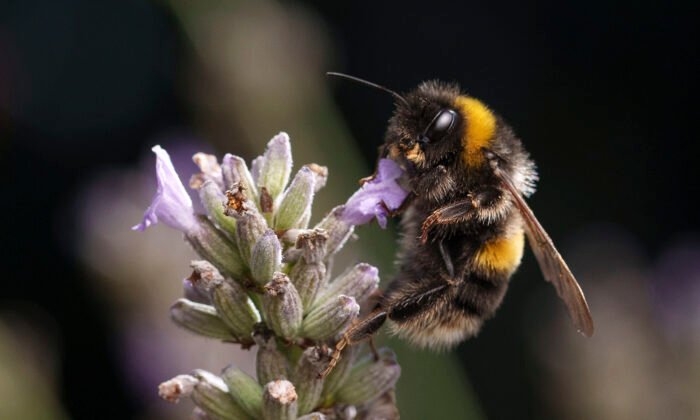Beekeepers in Australia Accept Defeat as Varroa Mite Persists
Over 27,000 hives have been destroyed over the past year in an effort to eliminate the pest.
The state of New South Wales (NSW) has officially ended its program to eradicate varroa mite through mass culling of beehives and has shifted to learning to live with the bee parasite.
The NSW government announced on Sept. 19 that the National Management Group (NMG), the body responsible for the varroa mite response, had reached the unanimous decision to transition the response from eradication to management. They acknowledged that eradication was “no longer technically feasible.”
About $101 million has been spent and over 27,000 hives have been destroyed over the past year in an effort to eliminate the pest.
“Those who have sacrificed their bees for this response should know that their help has not been in vain and demonstrates industry’s commitment to being part of the solution.”
The new management program will aim to increase resilience and capacity to manage the pest and minimise its impacts on the honeybee industry and other industries that rely on pollination.
“This will occur through slowing the spread, building industry resilience, provide management options, and supporting pollination security,” it said.

Australia was the last continent free from the varroa mite until it was first detected in the port of Newcastle in June 2022. Prior to Australia, New Zealand fell to infestation in 2000.
No country has been able to eradicate the varroa mite after it entered the bee population.
When the mites were first detected in the Newcastle port surveillance hives, the NMG felt the infestation could be eradicated.
As a result, all beehives in marked emergency red zones had been destroyed regardless of whether they had been infected or not.
However, new detection showed infestation was far more widespread than initially thought and would have stretched the eradication zone beyond the team’s technical limit.
Now during an interim phase, the mandatory killing of hives in the zones has ceased, with beekeepers able to opt for voluntary euthanasia of their hives if they wish.
Beekeepers will have miticide strips available for use as one measure against the mites.
Miticide strips are a chemical treatment in the form of a rigid polymer strip that is attached to the inside of a hive.
They release a chemical ingredient that is toxic to the mite but safe for honey, beeswax, the brood, queen bee, and hive products.
As of now, the outbreak is still contained to the state of NSW but neighbouring Victoria remains on high alert. Multiple infested sites have been detected near the state border.
Beekeepers Seek Compensation
The NSW government has allocated $18 million (US$11.6 million) to reimburse beekeepers who had their hives forcefully destroyed.
However, affected beekeepers said the payout was inadequate and did not account for the impact the forced destruction of hives had on their income.
NSW small business owner and beekeeper Dolfi Benesh said he has lost between $200,000 (US$129,000) and $300,000 (US$194,000) since he was forced to destroy his bee colony in October 2022.
Mr. Benesh had 53 hives and was given about $30,000 in compensation by the NSW government, which he said would only cover the immediate cost of the hives and not the loss of business from not producing honey.
“As time goes by, I see the losses piling up,” he told ABC.
“I want to be properly compensated. Not having bees takes all the profitability from the business.”
Mr. Benesh is one of the beekeepers in the upcoming class action led by lawyer Stewart Levitt who said the state government was “basically destroying small business people” by not adequately compensating beekeepers.
Lis Wang contributed to this report.






